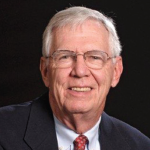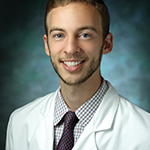
zieusin / shutterstock.com
Rheumatologists who are outstanding clinicians, provide consistently exceptional care to patients and serve as role models for colleagues and trainees are in the spotlight in our Lessons from a Master Clinician series. Here, we offer insights from clinicians who have achieved a level of distinction in the field of rheumatology and who are respected by other rheumatologists for their exceptional clinical reasoning, knowledge across a wide range of medical specialties and patient-centered care.
Ronald J. Anderson, MD, is one such outstanding rheumatologist. Now in his sixth decade of clinical teaching and patient care, Dr. Anderson has spent the majority of his career at the Brigham and Women’s Hospital, Boston, where he established the clinical rheumatology training program in 1971.
This program has trained more than 200 physicians, many of whom are now rheumatology leaders themselves, both locally and at the national level. These graduates have positively affected the lives of patients afflicted with rheumatic conditions—whether by research, teaching or the delivery of patient care. An ACR Master, Dr. Anderson was honored by the ACR in 2012 as the inaugural recipient of the Distinguished Fellowship Program Director Award. He remains active in teaching and is a Master Clinician Teacher in the Department of Medicine, the Brigham and Women’s Hospital.
The Rheumatologist (TR): How would you define a master clinician?
Dr. Anderson: In a traditional sense, the master clinician is an individual with a library of knowledge and technical skills that explodes at the seams; someone who is always the star participant in clinical pathologic case session and offers unique insights while making rounds or attending clinical conferences.
The process of obtaining this level of competence is somewhat dependent on both effort and intellect. But does it end there? Is this skill the essence of what is required to become a master clinician? Or are we describing a master technician?
Philip Tumulty, MD, in his opening lecture to third-year medical students at Johns Hopkins, would define a clinician as ‘one whose prime function is to manage a sick person with the purpose of alleviating most effectively the total impact of the illness upon that person.’ I agree with this definition and believe one should accept the premise that there will always be other physicians, some as close to a minute’s walk away, who know more about a specific problem than you do.
The reasonable and obtainable goal is to aim at becoming the best physician possible for the specific patient under your care, in other words, a master clinician.
TR: What do you view as the goals for training young physicians?

Dr. Anderson
Dr. Anderson: It was a different world when I began my career as training program director at the Brigham in 1971. At that time, there were subspecialty boards in only three areas: cardiology, gastroenterology and pulmonary diseases. The position of a hospital-based, full-time clinician teacher in any of the medical disciplines essentially did not exist.
Physicians chose to train in such fields as rheumatology, endocrinology and oncology not to obtain board certification, but primarily because of an interest in the underlying science and clinical challenge of these disciplines. It has been suggested that the most positive impact of the discovery of the rheumatoid factor in the 1940s was that it attracted immunologists to the study of rheumatic diseases.
Over the course of a career in the practice of medicine, one becomes aware that many of the facts learned, conditions treated and clinical skills previously acquired are no longer applicable—or even employed in the current care of patients. At one time I was proficient in the nuances associated with the use of digitalis, mercurial diuretics and injectable gold. Fortunately, these talents are no longer needed.
Technology changes, but patients remain the same. I am convinced that the skills and techniques used in obtaining and interpreting the patient’s history, performing a
physical exam and interacting effectively with both patients and colleagues remain unchanged and are essential to the education of young physicians, as is the creation of an environment that is stimulating, interactive and supportive.
Participation in an investigational activity should be included in the training process, especially for those with no long-term plans to develop as an independent investigator. This experience enables one to evaluate new information in a critical fashion, improve their ability to teach and also interact with investigators at various levels throughout their careers.
TR: What do you believe are the essentials in interacting with patients?
Dr. Anderson: The primary goal of the initial encounter with a patient is the creation of an atmosphere of trust and an acquisition of an understanding of the unique individual and medical characteristics of the patient. There are three pieces of data that seem essential to obtain either at the first visit or shortly thereafter:
1. What is their support system? Who are they responsible for, and who is there to support them?
2. What is unique and special about the patient? What are they famous for?
3. What have they been successful in during their life, and/or how have they dealt with adversity?
Time spent in forming this relationship is cost effective by any criteria. It will serve both parties well, particularly in dealing with the difficult times that undoubtedly will occur in the course of continuing care. As a result of understanding their unique needs, strengths and past experience with adversity, the use of extraneous laboratory tests and imaging studies obtained solely for reassurance can be reduced and the patient is more likely to comprehend and follow instructions. Less time and effort are spent on attempting to convince the patients of your competence.
TR: How does one deal with uncertainty?
Dr. Anderson: It is not always necessary to make a diagnosis at the end of the visit. Many rheumatological presentations will get better spontaneously and are diagnoses of exclusion.
Remember that the great body of medical knowledge is based on conditions that don’t get better. When uncertainty exists, the approach of initially considering and excluding, as best as one can, the worst-case scenarios is often appropriate. It is good to understand that once you make a diagnosis, you may stop thinking. Patients tend to benefit from an uncertain, yet questioning, physician.
If a program of ‘wait and see’ is chosen, think out loud, discuss it with the patient, and make certain they agree. Avoid the tendency, often requested by the patient or their family, to intervene with imaging studies, further bloodwork or trials of therapy. It is in situations such as this that the initial establishment of a mutually trusting relationship pays off.
 Jason Liebowitz, MD, completed his fellowship in rheumatology at Johns Hopkins University, Baltimore, where he also earned his medical degree. He is currently in practice with Skylands Medical Group, N.J.
Jason Liebowitz, MD, completed his fellowship in rheumatology at Johns Hopkins University, Baltimore, where he also earned his medical degree. He is currently in practice with Skylands Medical Group, N.J.



